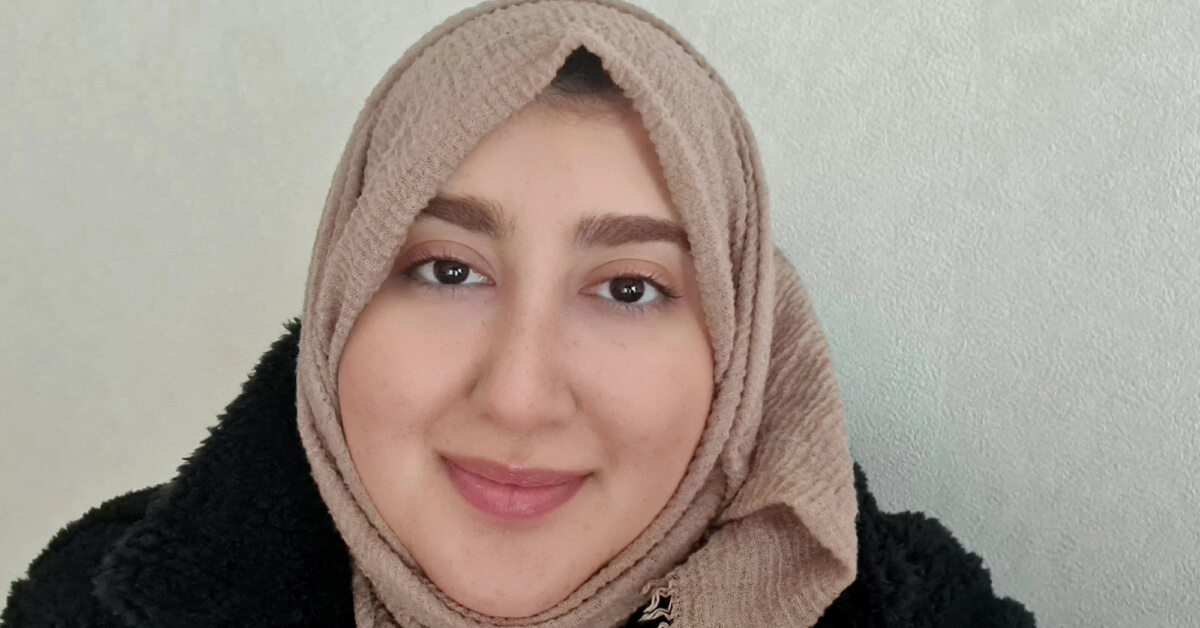Security isn’t always the first thing that comes to mind when you think of us, but when it comes to keeping everyone safely connected, We Are The Protectors. Yasmeen is one of them, and she’s lifted the veil on getting diagnosed with ADHD, leveraging her unique capabilities at work, and reskilling into Cyber Security.

What’s your current role at BT?
I started as an apprentice Contact Centre Advisor in our Consumer division in 2018.
However, I was lucky enough to be selected for the CAPSLOCK re-skilling programme which looked to develop thirty colleagues into cyber security specialists. It was an intense sixteen-week course.
I’m now a fully-fledged Cyber Security Professional in one of our UK Security Operations Centres. It’s my job to investigate security alerts highlighted by our customers.
What attracted you to change your career and apply for the CAPSLOCK reskilling programme?
My previous role as a Contact Centre Advisor was not challenging me enough and I felt there was no room for me to excel or develop any further. Cyber Security was always my passion, so when a once in a lifetime opportunity came up to apply in the area, I went for it. It gave me a career that I always wanted at a company where I want to stay for a long time, because the BT values are what make me want to stay here. It’s a diverse company and no matter where you go in the company, everybody is willing to support you, whether that is in a professional capacity or personal.
What is your favourite thing about being a Protector?
Being a Protector at BT means learning every day, gaining new skills and getting opportunities to take part in different projects in Security: those are some of my favourite things about being a Protector because no day is the same.
How would you describe your team culture?
The team culture is friendly, everyone engages with each other, and we plan a lot of team outings. It’s also challenging and exciting because every day is different, and the team is super supportive and willing to help anytime.
When were you diagnosed with ADHD (Attention deficit hyperactivity disorder)?
I’d been struggling for some time and knew I was different in many ways but couldn’t put my finger on it. I had a hard time in school/college, was impulsive, often loud, easily distracted and missed social cues.
I eventually went for tests in early 2018. I was very unhappy with the ADHD diagnosis and in denial for some time.
However, I decided to embrace my condition after starting the new role in Cyber Security which plays to my strengths and the ADHD has worked out to be a bonus too!
How did your condition impact you in your new role?
It was very tough in the first few weeks because I hadn’t told my colleagues about my condition and tried to muddle through.
But being in an environment where everything was so new was hugely over stimulating for me. New location, new colleagues, new type of work and new ways of working.
The written training material I’d been given, although fine for most, wasn’t in a format that worked for me and the noise in the office background was very disruptive to name just a couple of personal setbacks. I was starting to lose confidence.
How did you overcome the challenges associated with your condition and how did your team support you?
I did some reflection. I’d worked hard for this role, so I needed to find a way to make it work for me: I opened up to my colleagues and explained my condition and the challenges I was experiencing.
I told them I’d probably ask more questions than most new joiners and highlighted some things that would make the working environment more comfortable for me. This included clear written text in documents with limited imagery, face to face and Teams calls where possible instead of messages as I prefer visual cues, etc.
The reaction was great. I felt supported and adjustments were made which helped me transition into the new role faster than I could have hoped.
How does the new role play to your strengths?
Having ADHD isn’t holding me back! Because I need things to be structured and orderly, I investigate incidents thoroughly and provide my internal and external stakeholders with detailed information which is critical to the role. And because my brain works at a hundred miles an hour, I can multi-task and deliver quickly and effectively.
What advice would you give other neuro diverse people?
If you’re neuro diverse, and want to try something new, don’t let the condition hold you back. BT has helped me re-skill into a brand-new profession and made adjustments that help me apply my uniqueness in a way that benefits me, the company and our customers.

